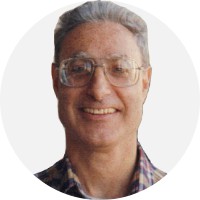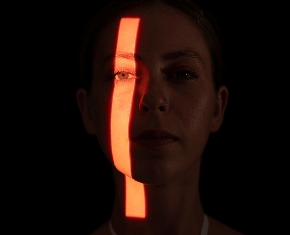The views expressed in our content reflect individual perspectives and do not represent the authoritative views of the Baha'i Faith.
When Christ came, out of the millions of people living at that time, only twelve souls truly recognized him and became his disciples.
The vast majority of people, whether learned or not, unhesitatingly rejected him. Why? Because they were not open to the possibility that Jesus was a prophet, a messenger of God.
When someone declares he is a messenger of God, the natural response is skepticism, or maybe to openly proclaim: “I don’t think so!”
It’s hard to recognize and accept a messenger of God if we have our own beliefs, our own expectations, and we are happy with what we believe. Our cup being full, we can’t fill it any further.
The only way we can accept someone as God’s messenger is if we are sincerely open to the possibility of it.
If necessary, this requires that we do something we don’t want to do, that our egos may strongly resist: completely emptying our cups by unlearning our traditions and all we have been taught to believe, and starting our religious education all over again. This requires tremendous courage and a burning desire. The vast majority of people do not even think of doing this; or if they do think of it, they don’t want to do it. The result? They automatically reject anyone who claims to be a messenger of God.
When we make a deliberate effort to unlearn all we have been taught, what we are admitting to ourselves is this: our clergy, Sunday school teachers, parents, and even our culture, through no fault of our own, are at the very least, incomplete in our views about religion, if not downright wrong. This is extremely difficult to accept and the pain can be excruciating. Our egos fight us tooth and nail.
Why shouldn’t we just hold on to our current beliefs? We don’t want to feel like heretics! We don’t want to upset our friends and families, much less risk their rejection. We naturally assume our clergy, Sunday school teachers, parents, and culture are knowledgeable. How could they all be wrong?
However, if we are going to be deeply sincere in our investigation of the truth, and search with open hearts and minds, we have no choice but to empty our cups by unlearning what we have been taught. Baha’u’llah stated this clearly when he wrote:
O Son of Dust! Blind thine eyes, that thou mayest behold My beauty; stop thine ears, that thou mayest hearken unto the sweet melody of My voice; empty thyself of all learning, that thou mayest partake of My knowledge; and sanctify thyself from riches, that thou mayest obtain a lasting share from the ocean of My eternal wealth. Blind thine eyes, that is, to all save My beauty; stop thine ears to all save My word; empty thyself of all learning save the knowledge of Me; that with a clear vision, a pure heart and an attentive ear thou mayest enter the court of My holiness. – The Hidden Words, p. 25.
It’s easy to read these beautiful words—but acting upon them presents us with a serious challenge that most would rather avoid. It can be frightening, if not terrifying to face the possibility that our beliefs need replacing, and that by jettisoning the old set of beliefs we’ve carried around for so long, we may end up creating a void, an emptiness we’ve never experienced before.
Nevertheless, the Baha’i teachings call upon all human beings to conduct a reasoned, fearless, independent investigation of the truth:
… know ye that God has created in man the power of reason, whereby man is enabled to investigate reality. God has not intended man to imitate blindly his fathers and ancestors. He has endowed him with mind, or the faculty of reasoning, by the exercise of which he is to investigate and discover the truth, and that which he finds real and true he must accept. He must not be an imitator or blind follower of any soul. He must not rely implicitly upon the opinion of any man without investigation; nay, each soul must seek intelligently and independently, arriving at a real conclusion and bound only by that reality. – Abdu’l-Baha, The Promulgation of Universal Peace, p. 291.
This is the way to empty our cups, no matter how difficult, no matter how painful. In return, we gain immeasurably by recognizing, accepting, and serving God’s messenger. What greater act is there than this? Nothing can compare to it!
If you are investigating the life and teachings of Baha’u’llah, and are having great difficulty accepting them in your mind and heart, you may want to seriously consider emptying your cup. Yes, it may be hard—but think about how much you will grow.
If you do this, be gentle with yourself. Don’t throw away everything all at once. Give yourself time. Pray. Meditate. Talk with Baha’is who have converted from other religions, especially your religion. But do it! Don’t let your fear stop you. When you have emptied your cup and have recognized Baha’u’llah, celebrate in a huge way—because you have passed a huge test. Congratulations!!!
















Comments
Sign in or create an account
Continue with Googleor